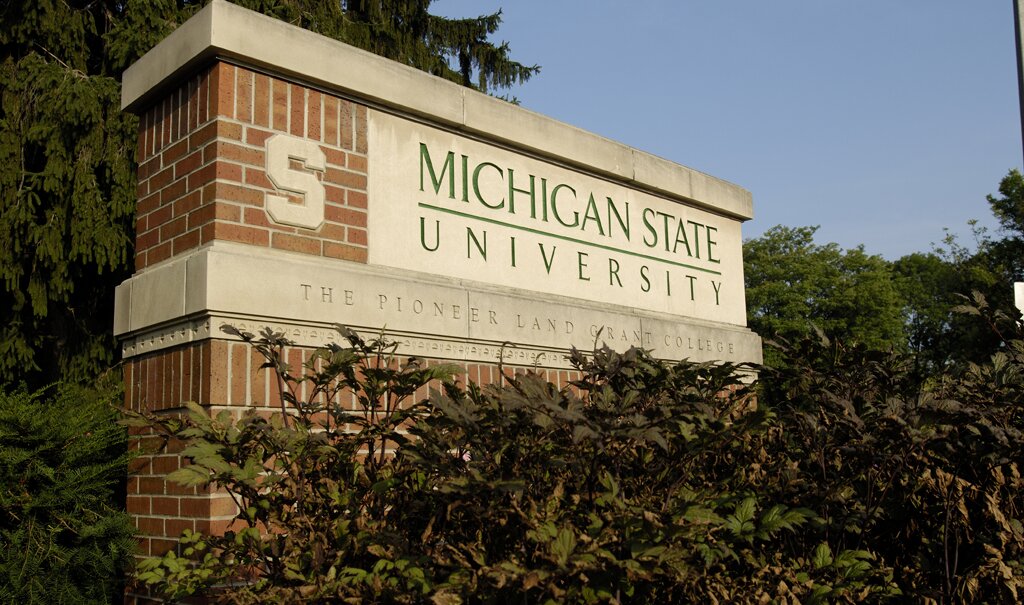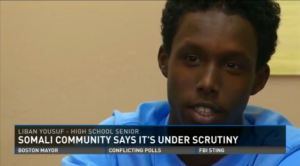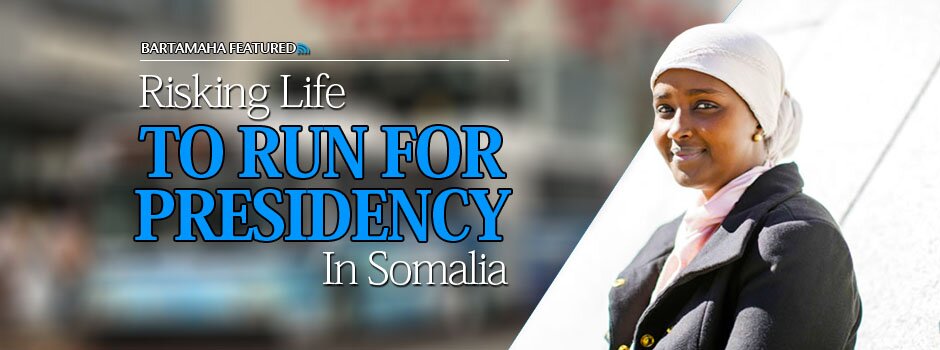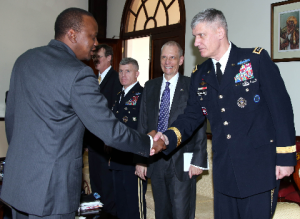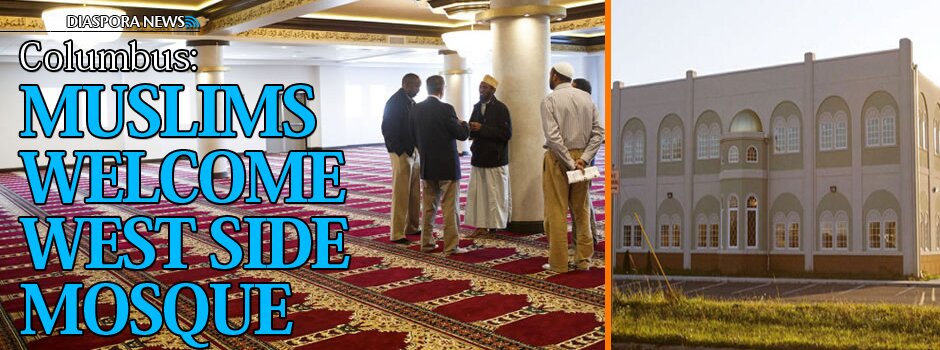Immigrant business owners in Buffalo get police tips on avoiding crime
When Mustafa Abdo and Aung Myat launched their computer repair business, I.T.Garden, on Grant Street earlier this summer, they were aware of the street crime that had riddled the West Side neighborhood where many immigrants have settled.
“Too many crazy things were going on before. Drug sales, gangs. Three years ago, a 15-year-old high-school student was shot to death by a gang chasing him down the street,” recalled Abdo, who is from Somalia. “Right now it’s a little bit different. I can see a little improvement. More businesses are opening up, and that will make the police take notice.”
Abdo and Myat, who is from Burma, were among the approximately 50 immigrants who attended a crime-prevention seminar Wednesday night at the Salvation Army on Grant. “Small Business Ownership in the Immigrant Community” was sponsored by HEAL International, a community service organization that eases the transition for Buffalo’s growing immigrant population.
The West Side, particularly Grant Street, has been revitalized by small businesses opened by refugees and other immigrants, many of which serve the immigrant population and downtown’s professional population.
“It’s a tough area to do business,” said Hodan Isse, assistant professor of finance and managerial economics at the University at Buffalo School of Management and president of HEAL’s board of directors. “There’s a lot of crime, a lot of drugs. There are people who have been harassed who are afraid to call the police. We want people to feel comfortable going to the right group of law enforcement.”
Members of the Buffalo Police department, FBI and Department of Homeland Security were among the presenters at the seminar. Their comments were translated into Arabic, Burmese and Somali by interpreters.
“It’s an opportunity for these officials to explain who they are and what they do and say, ‘We’re here to protect you,’ and on the other hand to teach them the law of the land and tell them why it’s important to operate inside the law,” Isse said. “We’re talking about a basic working relationship – what’s right and what’s wrong.”
Buffalo Police Lt. Steve Nichols, commander of the department’s community police squad, told the businessmen how to prevent robberies and how to act during a robbery.
“Most robbers are just as nervous as the people they are robbing,” said Nichols. “Cooperate with them, do exactly what you are told, but above all, stay calm.”
The Grant-Amherst Street business district has become a magnet for many immigrant-operated businesses, including grocery stores, mini-markets, restaurants, clothing shops and the West Side Bazaar, a mini-mall of ethnic boutiques selling wares from Nepal, Rwanda, Burma, Somalia and other countries.
“The refugee people have good intentions to come and build something in the land of opportunity,” said Imam Yahye Omar, executive director of HEAL.
“Many are coming from civil war and countries run by dictators where the police are not your friend. Here in America, police are your friend.”
Since his arrival in 2000 as a refugee from Islamabad, Pakistan, Omar has worked to clear a channel of communication between law enforcement and Buffalo’s refugee and immigrant community.
He worked with police to film an educational video for immigrants, outlining the proper way to interact with police.
And he has acted as a go-between with law enforcement people, helping them understand the cultural currents running through the everyday lives of refugees.
The goal of the seminar was to let law enforcement and the immigrant merchant community make connections and start a mutually beneficial relationship.
“It’s really important for us to connect with the community,” said James Jancewicz, an FBI special agent with the Buffalo Safe Streets Task Force.
“A lot of times they are that silent ear for law enforcement to give us a picture of what is going on in the streets from day to day.”
Nichols pointed to research that indicated small retail operations and fast-food restaurants are easy targets for criminals. He offered tips to merchants.
“Only use one register at night, and keep the second one open with the drawer open to show a little money,” the lieutenant said. “Have a camera facing the register and front counter. One of the biggest deterrents is keeping the front blinds open and front windows clears of signs. We want the registers and the clerk behind the counter to be visible at all times.”
Connecting law enforcement with immigrant business owners is beneficial in other ways.
“It’s for the greater good of the community,” Isse said. “Grant Street is bustling with businesses, and this is the way to further that economic revitalization and keep the community vibrant.”
Buffalo Police Detective Earl Perrin, who specializes in gang activity, encouraged the merchants to be proactive.
“Unfortunately, you call after the fact, but you should try and call if you see someone acting suspiciously,” Perrin said.
“We want to get ahead of the crimes.”
Abdo, who operates the computer repair shop on Grant, recalled a scam artist who sent him a money order for $1,000 and then told him to cash it and make a series of purchases.
Suspecting a scam, he immediately took the money order to the post office, where his suspicion was confirmed.
He said he and other merchants are taking small steps to improve the safety of their business community.
One measure, he said, is to close his business before it gets dark.
“Right now we close at 8 p.m.,” Abdo said. “In winter we will close at 5.”
__
Buffalo News
Comments
comments
 Calendar
Calendar













